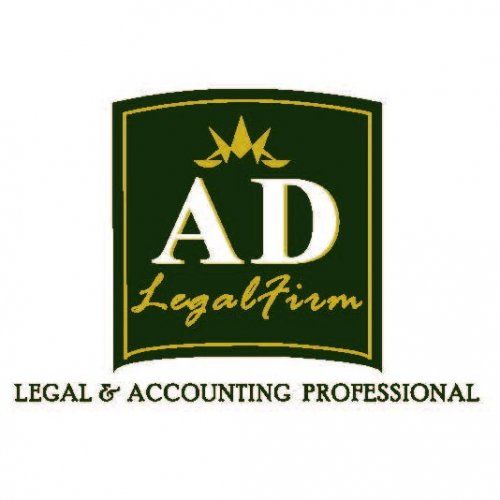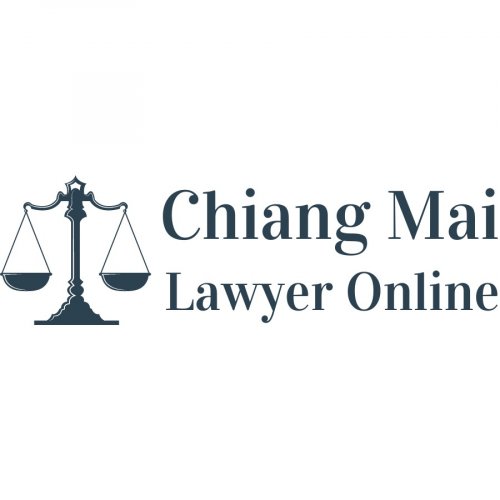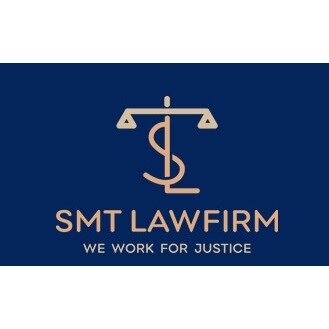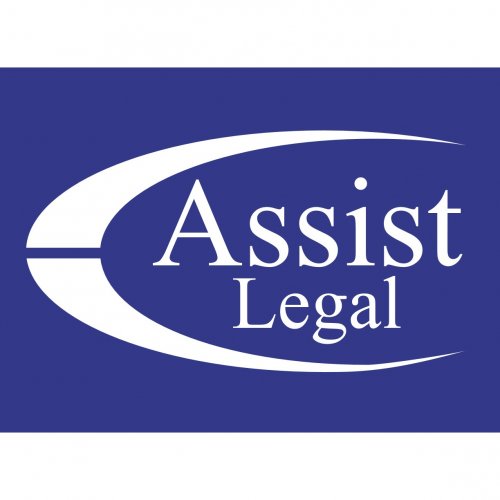Best Tax Increment Financing Lawyers in Chiang Mai
Share your needs with us, get contacted by law firms.
Free. Takes 2 min.
List of the best lawyers in Chiang Mai, Thailand
Legal guides written by SIAM LEGAL INTERNATIONAL:
- Defamation Laws in Thailand: Criminal Charges and Civil Suits
- The State of Thailand’s Long-Term Resident (LTR) Visa Program in 2025
- The Penalties Of Not Filing Your Income Tax Return As A Foreigner In Thailand
Thailand Tax Increment Financing Legal Articles
Browse our 1 legal article about Tax Increment Financing in Thailand written by expert lawyers.
- Thai Legal Framework for Cryptocurrencies
- Technology, investment, and money have all been fundamentally altered by cryptocurrencies. Countries all throughout the globe struggle to design legal regimes that safeguard consumers while fostering innovation as these digital assets develop. Thailand distinguishes itself in this sense as it has one of the most thorough regulatory frameworks regarding cryptocurrencies... Read more →
About Tax Increment Financing Law in Chiang Mai, Thailand
Tax Increment Financing (TIF) is a public financing method that is used to subsidize infrastructure, community improvement projects, or to stimulate economic development in a particular area. In Chiang Mai, Thailand, TIF is utilized to encourage the development of underutilized or undeveloped property by using the future tax revenues generated from the increment in property value as a result of the development. Local governments collaborate with private entities to invest in the necessary infrastructure improvements needed to stimulate growth.
Why You May Need a Lawyer
Engaging in Tax Increment Financing can be complex, involving numerous legal, financial, and regulatory considerations. You may need a lawyer in situations such as:
- Negotiating Public/Private Partnerships: Legal expertise is crucial when structuring agreements between government entities and private developers.
- Understanding Regulatory Requirements: Navigating the intricate laws and compliance standards related to TIF in Chiang Mai.
- Dispute Resolution: Addressing any conflicts that arise during the project, including issues with stakeholders or breaches of contractual obligations.
- Tax Implications: Assessing how TIF may affect taxes for individuals or businesses involved in the project.
- Project Viability: Evaluating the financial aspects and legal feasibility of a proposed TIF project.
Having a lawyer ensures that your interests are protected throughout the TIF process, from initiation to completion.
Local Laws Overview
Chiang Mai applies specific statutes and regulations regarding TIF used to develop public infrastructure and private real estate projects. Key aspects include:
- The authority of local governments to designate TIF districts based on criteria established by municipal and provincial legislation.
- The procedures for approving a TIF project, which typically require public hearings and the input of various stakeholders.
- Delineating responsibilities between public and private sectors within a TIF agreement.
- Regulations on the allocation of tax increments to finance the necessary development without affecting the existing tax base.
These laws ensure that TIF projects contribute positively to community growth while adhering to strict fiscal and regulatory standards.
Frequently Asked Questions
What is Tax Increment Financing?
Tax Increment Financing is a public financing method used to subsidize redevelopment, infrastructure, and other community-improvement projects.
How does TIF work in Chiang Mai?
In Chiang Mai, TIF involves designating an area as a TIF district. The future tax increment derived from the increase in property values is then used to fund development projects.
Who administers TIF in Chiang Mai?
TIF projects are typically managed by local municipal governments in collaboration with private sector partners, according to regional policies and regulations.
What types of projects can be funded by TIF?
TIF can fund various projects, including transportation infrastructure, public utilities, residential and commercial development, and community centers.
What are the benefits of using TIF?
TIF helps stimulate economic growth, enhance public infrastructure, improve the local quality of life, and may attract additional investments to the area.
Are there any risks associated with TIF?
Potential risks include over-reliance on future tax revenues, misallocation of funds, and the possible displacement of existing communities due to redevelopment.
How is a TIF district established?
A TIF district is established by local governments through legislation, considering the area's need for redevelopment and potential for economic growth.
Can TIF affect existing property taxes?
No, TIF is designed not to affect the existing tax base and primarily uses the increment in tax revenues generated from the increased property values.
Is public input required in TIF projects?
Yes, public consultations and hearings are often required to ensure community engagement and address any concerns regarding proposed projects.
How long does a TIF district last?
The duration of a TIF district can vary, but it is generally established for the time needed to complete the project and fulfill financial obligations, usually ranging from 10 to 30 years.
Additional Resources
For those seeking further information about TIF in Chiang Mai, the following resources can be invaluable:
- The local municipal government offices, where you can inquire about current and planned TIF projects.
- The Office of Natural Resources and Environmental Policy and Planning, which can provide guidelines on sustainable development projects under TIF.
- Legal and financial consultancy firms specializing in public-private partnerships and urban development law.
- Community forums or public hearings related to TIF projects to gain insights into public opinions and governmental planning.
Next Steps
If you are considering a TIF project or need legal assistance within this domain in Chiang Mai, it is advisable to:
- Consult with a legal professional specializing in real estate and finance law to navigate the complexities of TIF agreements and regulations.
- Identify potential partnerships with local government bodies and private stakeholders interested in TIF projects.
- Attend relevant workshops or informational sessions conducted by government agencies or legal advisors to stay updated on TIF trends and policies.
- Conduct a thorough feasibility study with assistance from financial and legal advisors to assess the viability and impact of your project.
These steps will help guide you through the TIF process efficiently and effectively, ensuring legal compliance and optimizing project success.
Lawzana helps you find the best lawyers and law firms in Chiang Mai through a curated and pre-screened list of qualified legal professionals. Our platform offers rankings and detailed profiles of attorneys and law firms, allowing you to compare based on practice areas, including Tax Increment Financing, experience, and client feedback.
Each profile includes a description of the firm's areas of practice, client reviews, team members and partners, year of establishment, spoken languages, office locations, contact information, social media presence, and any published articles or resources. Most firms on our platform speak English and are experienced in both local and international legal matters.
Get a quote from top-rated law firms in Chiang Mai, Thailand — quickly, securely, and without unnecessary hassle.
Disclaimer:
The information provided on this page is for general informational purposes only and does not constitute legal advice. While we strive to ensure the accuracy and relevance of the content, legal information may change over time, and interpretations of the law can vary. You should always consult with a qualified legal professional for advice specific to your situation.
We disclaim all liability for actions taken or not taken based on the content of this page. If you believe any information is incorrect or outdated, please contact us, and we will review and update it where appropriate.

















